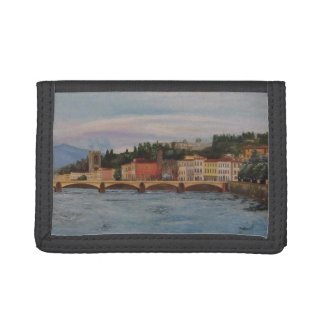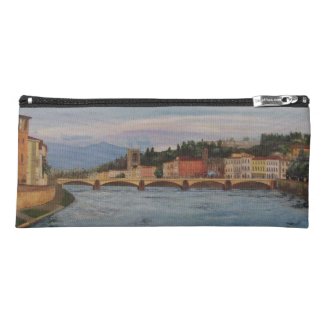INTJs don’t like to express emotion. This is true—it messes with the control complex. Repression is more likely, though emotional expression can break through. Emotion, with the tertiary introverted Feeling function (Fi) is very private. However, as numerous
articles have also attempted to correct, INTJs are certainly not emotionless. In fact, perhaps the opposite is true. INTJ emotion is just much more internal, and possibly inward-focused. With a dominant introverted intuitive function (Ni) combined with an inferior extraverted Sensing function (Se), INTJ emotions are very intense. It has just taken a while to figure that out when so many of those articles stop at the “oh, yeah, INTJs definitely feel emotion, they just repress it since it it’s riskier to allow than logical control” line. In effect, emotion is still downplayed for this MBTI personality type.
I’ve also read several articles and posts that suggest INTJs are also
less likely to cry during a movie (or express emotion at any other art form) than other types. However, I know this certainly cannot be true—at least not in all, and maybe not even most cases. I might attribute this belief to the fact that I’m a female INTJ while most of these posts are authored by males. But I also know I’m not alone in being deeply affected emotionally by movies, literature, and sometimes other works of art as an INTJ. I have seen this same catalyst for expressed emotion
self-reported in other discussions and by another female INTJ I know. Actually, the general consensus among these people is that we all feel significantly
more for characters in works of fiction than for people in reality. What is harder to pin down is how and why the empathy works differently in each situation—or why outward empathy for an INTJ is possible at all, much less for something that doesn’t even exist. But through a deeper study of the personality types (
MBTI as well as others and how they match up) and a connection to some of my old cognitive science and creativity research for my master’s thesis (there’s probably newer stuff, but
Patrick Colm Hogan’s 2003 book is, in my opinion, the best resource for this topic), I have concluded that the phenomenon in caring more for fictional characters than real people is not only neurologically possible but also more likely to occur in INTJs.
Here’s how this works, with a little crash course in the cognitive psychology of the reader from Hogan’s
Cognitive Science, Literature, and the Arts: A Guide for Humanists. Hogan looks at theories of how literature provides room for associations with its “suggestiveness” (156). In cognitive science, the idea is that while reading fiction, areas in the brain are activated through this mental process. This could include many different parts, but altogether they are the “set of all activated nodes connected to the work of art in any given reader’s or viewer’s mind” (156). And it might be assumed that memories are a significant part of what creates emotion in the first place along with “appraisal” or the reaction to degrees of selfish goal fulfillment (168). Then, universal emotional triggers create a sort of innate, and usually immediate, response (186-7). But I am still simplifying the concept of emotion and all the cognitivist disagreements about it for purposes here. It is more than “feelings,” but here I lump it all together as one and the same.
The process then, proceeds as follows. First, “all experiences leave traces in our memory” –or anything activated in the brain during those experiences, and therefore also the emotions we felt at those times (156). These accumulate over time, providing context for new experiences (156). In a new experience, links are created to past, related experiences, but sometimes the links don’t recall a full memory, but only the emotion of that memory, and that emotion may not always relate appropriately to the current circumstance (156). Also note that memory is “fragmentary” and “decays,” and therefore memories are not usually fully reconstructed as complete memories when reading (161). So even if a memory is activated and not just
primed (Definition: “An item in memory is primed when it is activated to a high degree, but just below access” [158]), it may still only be a fragment, and the attention to the work of art or fiction is still intact (rather than getting sidetracked down memory lane), not alerting us to the fact that all those things are happening on a personal level in the brain (161).
The emotional reaction comes in when the remembered emotion becomes more than just a memory. As the memory is activated, the associated feelings can actually be activated again (157). As we read (or otherwise consume some art form [“high” or “low”]), “[r]elevant memories are continually primed in our experience of literature” (158). This prolonged priming is not how we usually experience reality, though.
The main difference between fiction and reality, then, is the way in which we process and engage with the experience, to an extent. Hogan states that “in literature the memory triggers are fairly consistent and continuous for particular primed items” when normally, in real life experiences, the effects of priming do not last long (158). In reality, a memory may be “primed once,” quickly “replaced” by another, making the emotional effect small (158). This idea may help to explain the small amount of empathy INTJs can show for real life emotional situations. But fiction is longer-term for the mental activity: “In contrast, the suggestions of literary works keep the emotion-laden memories primed for long stretches of time. Thus their cumulative effect may be very strong” (158). Simply, stories prime memories for extended periods of time, creating a stronger emotional reaction. Maybe even strong enough for an INTJ? (Although I won’t get into it here, there are thresholds of emotion, which help determine when, essentially it boils over into outward expression, and finally, a total takeover, eliminating control. So, fiction might at times push into the upper two thresholds for INTJs.)
So, we return to the problem of caring about something that’s not even real. But Hogan has determined that in reading literature, we misattribute our emotions—also a common phenomenon in everyday life—to feeling for the characters in the book, but the target of the emotion is really oneself (159). In other words, we’ve connected with the protagonist, and have drawn, mostly subconsciously, on emotional memory from our personal experiences to engage with the story—creating the vicarious experience anyone might have when reading fiction. And then, the fiction (not real) part is “irrelevan[t] to the reader’s egocentric goals,” and the empathy still works (160). We have hypothetical goals and invested interest in the character because of our own imagined or vicarious experience through the character.
Furthermore, basically, how our brains deal with emotional responses has nothing to do with how we judge whether or not something is real, according to Hogan (185). However, perceiving emotion in others can also have a role in triggering that emotion in us, which seems to hold true for fictional representations of people exhibiting a certain emotion (177). Hogan does conclude that really, there are no egocentric limits on emotion triggers—there are certain emotions that seem to have a universal bearing on people. In such experiences, or at the stimulation for one of those emotional triggers, we feel certain innate emotion ourselves regardless of whether or not the situation directly applies to us.
But, these triggers can be “too distant” without imagination in some situations (186-7). As in fiction, we need to imagine ourselves in the character’s place to some extent in order to express a reaction to one of those universal emotional triggers. Plus, we use personal memories to more fully realize, or imagine, the world and details of the story that text cannot cover (160). And, as it turns out according to findings in cognitive science, vivid imagination equals reality when it comes to the brain’s reactions (181).
Therefore, it would seem to follow that intuitive types would have an advantage in a higher level of creating that fictional reality to a very full extent. From there, then, there would also be more emotional memories being primed, felt a second time, and providing even more to react to. Hogan illustrates a full circle of this process:
- Emotional response of a work from primed personal memorie-->
- Those personal memories help to fully imagine the work-->
- The memories are “reprimed,” creating emotional response—like at beginning of cycle. (161)
From pairing these ideas together with personality type, it seems clear that the INTJ (and probably other Ni types) would experience an even higher level of emotional stimuli from fiction than others.
Hogan also discusses a possible, though less scientific, correlation in moving between abstract and more particular thought to empathy (or emotion and moral evaluation) when considering a work of fiction. When moving from abstract analysis to specifics, Hogan noted a lack of emotion. But in the reverse, moving from specific to abstract thought, emotional response was much more likely (190). This, too, when connected to the idea of personality types, would explain why INTJs have a hard time empathizing in reality. Other types, when relating some emotional event, convey the specifics. But an INTJ’s mind is wired for the abstract. Therefore, the INTJ will perceive the event in the abstract—using a global or moral evaluation to analyze the situation as the first priority. Then, when the INTJ tries to move to the particulars of the experience, following Hogan’s observation, this would result in a lack of emotion toward it. The problem-solving side kicks in instead. As INTJs are preoccupied with ideas and more abstract patterns and judgments, it is not likely they would perceive the situation the other way around, which might result in some more emotional reaction.
But of course, INTJs still repress all emotion—right? Well, my theory here is mostly conjecture, but I would state that it is more necessary to an INTJ to repress emotion in public because of the perceived risk that may involve. Hence the awkward and purely logical reactions to what, for other people, should be a highly emotional experience or relation of such an experience in real life. (Or, if the INTJ’s own emotion pushes over some threshold to result in its expression when in public, the result is generally uncomfortable embarrassment—feeling the lack of control.) The idea that emotions in real life are primed much less continuously also furthers that idea of empathy lack from a cognitive perspective. On the other hand, in fiction, the emotion experienced can be both personal and private. Not only does the emotional experience needed to imagine a story come from internal memory, primed over and over, but the act of reading itself can be a private activity—a safe place providing an outlet to the deep introverted emotion of an INTJ. Showing emotion in such a situation would hold a relatively low risk in an INTJ’s analysis. The outlet of emotion in that case may then even be a purposeful pursuit, a catharsis that the INTJ intentionally seeks possibly even for the very controlled outcome of feeling the benefits of such a purging.
References for Cognitive Science and the Arts
Hogan, Patrick Colm.
Cognitive Science, Literature, and the Arts: A Guide for Humanists. London: Routledge, 2003. Print.
Martindale, Colin. “Biological Bases of Creativity.”
Handbook of Creativity. Ed. Robert J. Sternberg. Cambridge: Cambridge UP, 1999. 137-152. Print.
---. “Creativity and Connectionism.”
The Creative Cognition Approach. Ed. Steven M. Smith, Thomas Ward, and Ronald A. Finke. Cambridge: MIT P, 1995. 249-68. Print.
Turner, Mark. “Double-Scope Stories.”
Narrative Theory and the Cognitive Sciences. Ed. David Herman. Stanford: CSLI, 2003. Print.













